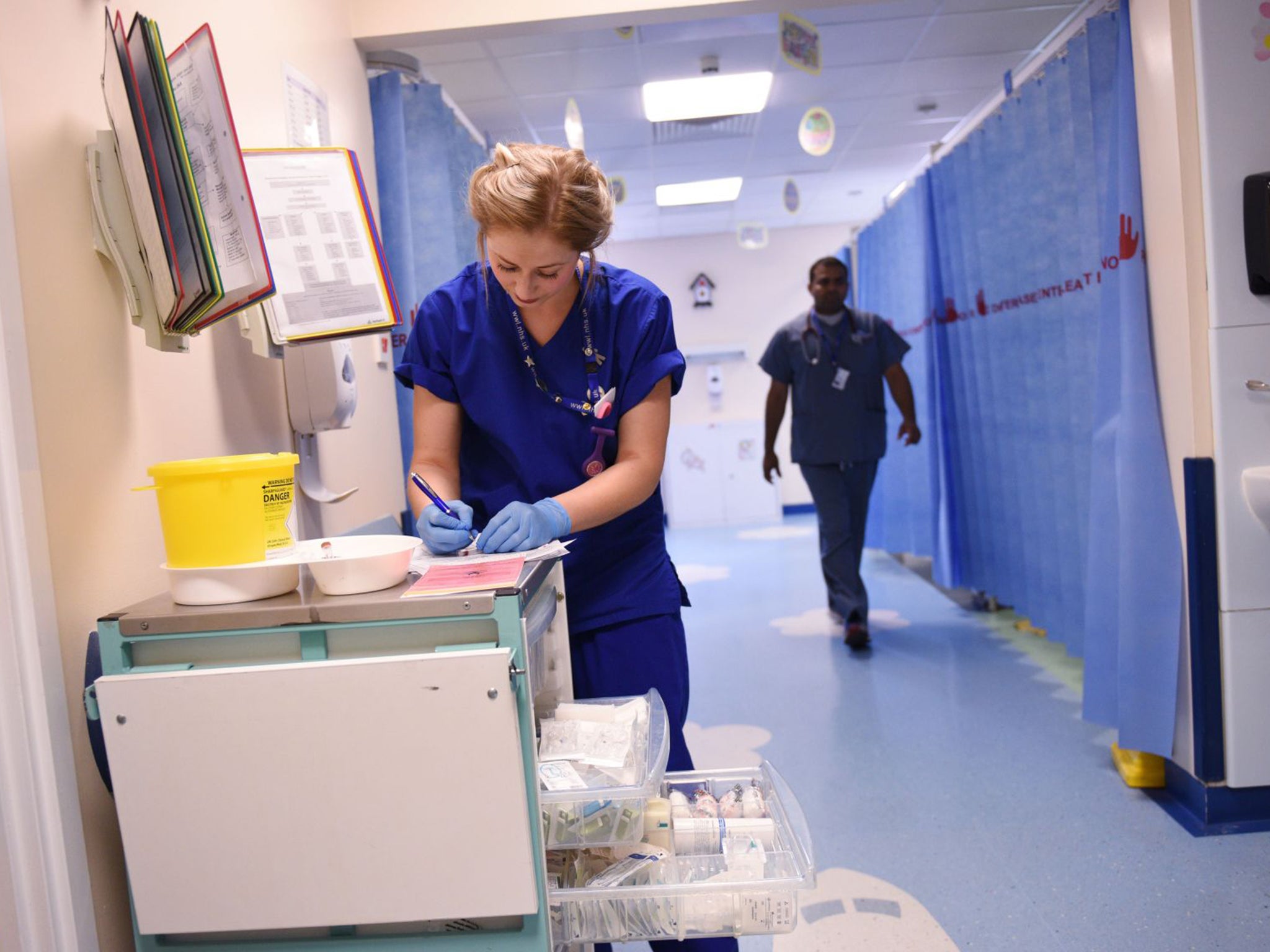A new NHS tax is the only cure for a failing system
We need to stop worshipping the NHS and start seeing its true cost


Your support helps us to tell the story
From reproductive rights to climate change to Big Tech, The Independent is on the ground when the story is developing. Whether it's investigating the financials of Elon Musk's pro-Trump PAC or producing our latest documentary, 'The A Word', which shines a light on the American women fighting for reproductive rights, we know how important it is to parse out the facts from the messaging.
At such a critical moment in US history, we need reporters on the ground. Your donation allows us to keep sending journalists to speak to both sides of the story.
The Independent is trusted by Americans across the entire political spectrum. And unlike many other quality news outlets, we choose not to lock Americans out of our reporting and analysis with paywalls. We believe quality journalism should be available to everyone, paid for by those who can afford it.
Your support makes all the difference.I am not a fan of Sir David Nicholson, the former National Health Service chief executive. His appointment sent out a terrible signal when he was indelibly linked in a previous post to the worst health scandal this century: all those needless deaths in a mid-Staffordshire hospital. Any decent person would have fallen on their scalpel and slunk away, especially given the persistent problem of woeful failures blighting patient care in this country. And his tenure in the top job was open to criticism.
But Nicholson is correct about one thing: the need for a dedicated health tax to fund the service and stop us “sleepwalking into disaster”. Speaking last week at a debate in London, he accused politicians from all parties of lacking “compelling vision” for the NHS. He could have added that this was except for their readiness to spout pathetic platitudes about the institution being the wonder of the world, when in actual fact evidence shows patient outcomes are often rather poor.
The former NHS boss went on to argue for a hypothecated tax on the grounds that voters would not swallow fresh tax rises to drive up standards without knowing where the money would be spent. This is true. But the issue goes far wider than simply winning political cover to throw some more money into the insatiable health service. As shown once again by the junior doctors’ strike, we need to change the terms of debate and the balance of power to achieve a modern, thriving health service.
We are about to endure six more days of strike action by junior doctors, fast becoming the biggest breakdown in relations between the government and medical staff since the NHS was created almost seven decades ago. The British Medical Association dresses its protest up as concerning safety when it is simply a pay dispute by workers protecting weekend overtime rates. Such is our nation’s strange sanctification of its health service, these union bosses act like they own a public service secure in the knowledge that medics tend to win tussles against politicians.
This underscores wider issues. Politicians get blamed for failures, power lies with staff, and patients too often end up getting inadequate service in shoddy conditions. I do not want to traduce the entire workforce, who daily achieve miracles in difficult circumstances. There has never been a better time to fall ill given astonishing medical advances combined with more staff, safer hospitals, fewer infections and lower death rates. The number of operations performed almost doubled in a decade. But while the NHS appears efficient, the legacy of its patched-up service is a series of patient scandals and comparatively poor performances on many indices from cancer survival to infant mortality.
The government’s effort to force through improved seven-day service is the latest tentative attempt to tackle deficiencies, following on from policies such as internal markets and the introduction of personalised budgets for long-term conditions. From the start of the NHS, doctors have resisted reform and then been bribed into acceptance. Meanwhile healthcare costs are soaring for a multitude of reasons and pressures building on everyone involved – doctors, nurses, managers, ancillary staff and politicians alike.
Yes, the NHS has seemed in perpetual crisis almost since foundation – but at some point something has to give. People will continue to live longer and get fatter. There will be growing numbers of people with costly complex conditions (the patients, usually old or disabled, that invariably suffer when the system cracks). There will be more drugs created, more treatments made available, more scientific advances, more technologies invented. These are all things to celebrate– but they tend to come with an attached price tag.
Under Labour, funding for the NHS almost doubled in real terms over the first decade of this century, leading to absurd claims the “tanker had been turned”. The coalition ring-fenced spending, then the Tories pledged an extra £8bn by the end of their time in office. Yet they are routinely accused of “privatisation” and “cuts”, many hospitals are in deficit, social care is suffering and even respected experts say the NHS faces its biggest squeeze in history.
More money is not the only answer to NHS problems, but it is a key part of the solution. Its budget has ballooned by more than twelve times in real terms over its history and will keep on spiralling upwards; it would swallow Britain’s entire income in half a century if allowed to rise at the same rate as under Tony Blair. There have been suggestions of new charges used in other countries: for seeing general practioners, missing appointments and staying overnight in hospital. But even if all three levies were introduced at £10 each, they would raise only £3bn – helpful, but peanuts in health terms.
We need to change the national conversation. The nation needs to stop worshipping a flawed, outdated institution that the public perceives as free by forcing people to see the real costs and dilemmas. The only way to do this is through a dedicated NHS tax. If voters saw the sums taken from their pay towards the NHS, this might promote a more mature discussion about the costs and provision of health care. It could also encourage better and more transparent management, ideally devolved to frontline medical teams, and make patients less sanguine about poor services, care failures and inadequate facilities. The alternative is to let a sickly patient struggle on to a sad death.
Join our commenting forum
Join thought-provoking conversations, follow other Independent readers and see their replies
Comments